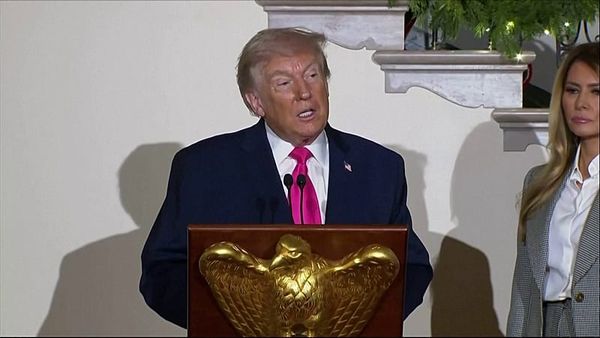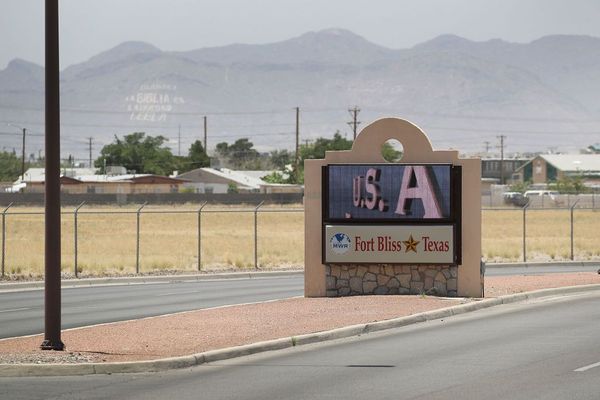CHICAGO — Last year at the end of Ramadan, Faiza Siddiqui — like millions of Muslims each year — was waiting intently for the moon sighting announcement determining if the next day will be Eid al-Fitr, the holiday after the month of fasting.
Siddiqui, a resident physician at the University of Chicago, refreshed her browser every few seconds as the window to call off work for the holiday dwindled. Finally, around 10 p.m. May 1, the announcement was made by Chicago Hilal, Crescent Watch and other moon-sighting organizations that the moon was spotted in California and other parts of the country, meaning Eid would be the next day.
But for Siddiqui, it was too late.
“I was on a very time-sensitive rotation. ... I ended up going in to work. I had to go in,” she said. “It was 10 p.m. ... I felt it would be very unprofessional to ask someone to cover for me that last minute!”
That is a routine dilemma for Muslims across non-Islamic majority countries who celebrate Ramadan and both Eid holidays based on the actual moon sighting rather than the calendar date, which means they won’t know which day Eid falls on until the night before.
Some Chicago-area Muslims feel that stress this year as the end of Ramadan approaches this week, while others say they already see a shift taking place that has made it easier to have conversations at work to request time off. Whether following the moon sighting or the pre-calculated date, Muslims in the workforce are growing in size and looking for the same consideration and awareness their co-workers get for their major holidays.
Those who follow the moon sighting do so based on the Sunnah, or the traditions and practices of the Prophet Muhammad that constitute a model for Muslims. Others rely on a predetermined date for when the moon “could” be visible.
Youssef Ismail, an astronomy professor at Zaytuna College in Berkeley, California, and one of the founders of Crescent Watch, said sighting the new moon at the start and end of Ramadan is an extremely important and intricate responsibility.
“The moon sets after the sun on the first day, so there is a very short window to spot it,” he said. Crescent Watch relies on visibility forecasts to indicate whether a sighting of the new moon will be probable in most of North America.
On Thursday evening, when moon sighters like Ismail go looking for the new moon to determine the end of Ramadan, they will search for a thin-as-hair crescent.
“It’s a very thin sliver — the new crescent moon is like a little eyelash in the sky,” Ismail said. “From the moment the moon crosses between the earth and the sun when they are lined up longitudinally — that’s called a conjunction. That’s when you say the new moon has been born.”
Ismail explained that lunar months are 29 or 30 days and it depends on when the moon is actually born.
“The Prophet said, ‘Don’t fast until you see the new moon, and don’t break your fast until you see the new moon. If the sky is blocked by clouds and you can’t see the new moon, complete the month as 30 days,’” Ismail said.
That means, if the moon is spotted on the 29th of Ramadan, which this year is Thursday, Eid will be Friday.
The caveat to doing this the right way is that the new moon must be seen with the naked eye, not with the use of binoculars or telescopes, and it has to be seen by at least two people, he said.
Part of the role of moon-sighting organizations like Crescent Watch is to inform its followers of moon sightings as observers station themselves in different time zones. It’s usually on the West Coast with its mostly clear, mostly sunny skies that make for better viewing conditions than in the Midwest or East Coast, which means people in the Chicago area often have to wait until sunset on the West Coast to know for sure.
“Literally, we are the last word for North America — sometimes it’s a blessing and other times, it’s a real burden because everyone in the country is waiting for us to come up with a report,” Ismail said. “It’s a lot of pressure.”
Des Plaines resident Ayesha Ibrahim, who works at Expedia Group in Chicago’s Loop, said she usually just requests both possible days off to be safe.
“It shouldn’t be complicated even though it feels like it is because you’re giving them two options — either Friday or Saturday,” she said. But she has learned that requesting time off for Eid is better suited for a one-on-one with her manager, as opposed to a Teams message.
“I try to set aside 10 to 15 minutes to explain why I need to block off two days and that I follow the moon sighting, and that we will know exactly the night before whether you’re off work or not,” Ibrahim said.
Recently, Expedia Group held a panel discussion on Ramadan that included Muslims talking about the importance of fasting and how co-workers and supervisors could be more accommodating. They also talked about requesting time off for Eid.
“It’s just complicated when you have to explain the moon — that there is no specific date for it, unlike Christmas or other holidays,” Ibrahim said.
Rohemat Omowabi, 28, who lives in West Loop and works as a project manager in Des Plaines, formerly worked at Amazon, where she felt Ramadan was better acknowledged compared to her current, smaller company.
“I had to remind my boss that it’s Ramadan and I might need to work a different schedule in the last 10 days,” Omowabi said, as the last 10 days of the month traditionally include increased prayer and observance. “It was still a mostly work-focused conversation, like making sure I don’t miss any meetings so I wouldn’t need to get caught up later. It was different when I was at Amazon, a lot easier, I would say.”
Many Muslims such as Omowabi have to reconcile with the fact that their religious holidays are not given the same importance as other major holidays.
Reem Subei is a senior staff attorney with Muslim Advocates, a national civil rights organization focused on advocating for Muslims in any city. She said the first step to solving this isolating issue is for management and higher-ups to recognize Islamic holidays along with all other religious holidays on company calendars, which can set the tone and create space for open conversations about how religious holidays can be accommodated, “because failure to even recognize these holidays on a calendar impedes the process from starting.”
She said it’s important for Muslims, just like anyone else, to know and understand they are entitled to religious accommodations, whether it be in the office or elsewhere.
“When I say entitled, that comes with a huge clause because there are so many restrictions and we are nowhere near the position that we would like to be in for folks to have the best means of access of accommodations,” Subei said. “But there are rights, and we and other organizations work really hard to educate folks on those rights.”
Most employers have to make reasonable accommodations for their employees on the basis of religion, but Subei said even that is a balancing act. The accommodations shouldn’t cause any “undue hardship” to the employer, she said. However, she wants to see employers themselves putting policies in place that allow everyone to celebrate their religious holidays without any negative consequence.
“We would like to have an environment that invites people to engage in celebrating and practicing religious values in a fashion that takes everybody’s needs into consideration,” Subei said. “That requires a culture shift. That requires training. That requires procedures and recognition by those in administration that in fact fostering diversity and inclusion is a pathway to success and growth and positivity and is going to bring immediate and direct benefits to their places of employment.”
Salman Azam, 41, is a corporate attorney and board member for the Downtown Islamic Center who pushed for the Chicago mosque to adopt the calendar calculation method as opposed to the moon sighting method. He said he announced at the mosque last week that Eid al-Fitr will be Friday.
“This makes it very easy for people to request time off,” Azam said. “The biggest problem was that we didn’t know exactly when it would be, which poses a challenge for managers and bosses to approve. When you have a specific date, it at least makes it a little easier.”
Although Ismail understands the appeal of a convenient, predetermined date for Eid, from an astronomical standpoint, not just a religious one, it doesn’t add up, he said.
“If you go to the U.S. Naval Observatory website, they have a section on the Islamic calendar and sighting new crescent moons,” Ismail said. “This is one of the premier science-based observatories in the world, and they also say that there is no way of predicting where or when the moon will be seen. And if you are wrong — if someone makes an error whether in sighting or announcing — we’ve got everyone’s mistake on our shoulder and it’s a big thing.”
As millions of people look to moon sighting committees as Ramadan nears its end, Ismail said the process reinvigorates his spirituality. On Thursday around 7:30 p.m., 20 minutes before sunset, Ismail, who lives in the Santa Cruz Mountains with his family, will drive up to a ridge overlooking the Western horizon, 1,300 miles above sea level.
His team of moon watchers will first locate where the sun will set, as it provides a landmark of where the moon will be. And the rest will follow, he said.
“You cannot get it wrong if people go out and engage in the Sunnah,” Ismail said. “You either see the moon, or you don’t.”







